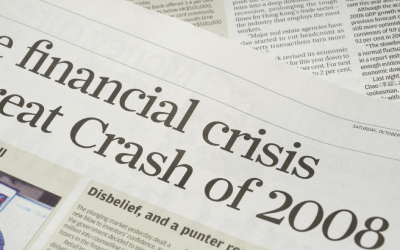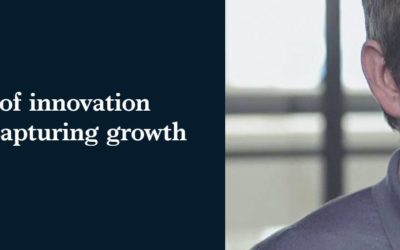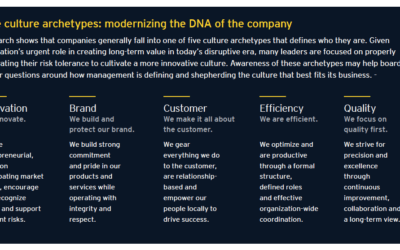Governance Articles
Corporate Governance Articles & Knowledgebase
Read corporate governance articles and information. Curated articles from around the web to improve you and your teams understanding of good governance, what is means, how to implement and how to best improve your company and internal governance.
Seeking Helpful Tools for Good Corporate Guidance? Try Governex
Are you seeking useful and informative tools for good corporate governance? Whether you are an individual trying to make yourself a more valuable job candidate by mastering governance or a corporate CEO trying to instil an understanding of governance throughout your organisation, we can help. Our organisation, Global Governance Initiative (GGI) launched in January 2019 with a mission of making quality corporate governance resources more readily available to businesses and individuals alike. If you are trying to assemble a corporate governance toolkit, our corporate governance training module—called Governex—is the ideal place to start.
Purchase Corporate Governance Training for Individuals or Businesses
At Global Governance Initiative (GGI), our goal is no less ambitious than reshaping the world of corporate governance training. Smart governance strategies are at the foundation of every successful business or organisation. They preserve the interests of stakeholders, give the organisation’s objectives and goals a clear framework, drive smart management, enable growth and help assure regulatory compliance. We want every organisation, big and small, to have access to the finest governance training and tools. Through our Governex platform, we are doing our part to provide that access.
Introducing Our New Company Directors Course
Global Governance Initiative (GGI), developed a new company directors course that teaches you about

Providing Award-Winning Corporate Governance Services in Australia
If you don’t fully understand how governance impacts the performance of
3 Ways to Improve Sales Forecasts When the Future Is Unclear
Here are three things boards and management can to do increase the accuracy of their forecasts during uncertain times.
Upgrading Your Strategic Planning Process
Planning is a core activity of every organisation and core to how we operate.
Rather than throwing away your existing process, consider upgrading it with the “Three R’s”: recovery, retooling and resilience.
You can think of this as an additional module to help you level up your existing planning and enhance its effectiveness.
Directors and Boards provide Purpose (S&B)
Boards of directors must take charge in overseeing their companies’ long-term direction and vitality, which means enforcing accountability for issues of purpose, longevity, and social impact.
Purpose and Culture
Purpose: Shifting from why to how. What is your company’s core reason for being, and where can you have a unique, positive impact on society? Now more than ever you need good answers to these questions.
Boards of directors in the tunnel of the coronavirus crisis
There are areas that boards and their chairs should prioritize when guiding their organizations through unprecedented uncertainty. Few boards of directors had a playbook for managing the crisis we face today. Now, even fewer have a clear perspective on when and how their organizations will emerge from the tunnel the coronavirus pandemic has forced them to enter. The light at its end is very dim. Uncertainty is high for most sectors and businesses, with boards and management teams struggling to find solid ground, which makes it all the more vital that boards are deliberate about where they focus their attention.
Lessons from 2008 for Management and the Board
Looking back to 2008, the executive and board leadership that did best for their shareholders focused on taking the necessary steps—regardless of then-current popularity with lenders, investors, or otherwise—to preserve their key managers and employees, to maintain liquidity, and to preserve and position the company for recapturing value as the crisis receded, including doing what they needed to in order to remain independent. Simply put, the principled and nimble boards and CEOs did best, often in the face of anxious investors clamoring for more short term fixes or exits.
Ten Considerations for Boards of Directors
Corporate management bears the day-to-day responsibility for managing the corporation’s response to the pandemic. The board’s role is one of oversight, which requires monitoring management activity, assessing whether management is taking appropriate action and providing additional guidance and direction to the extent that the board determines is prudent. Staying well-informed of developments within the corporation as well as the rapidly changing situation provides the foundation for board effectiveness.
We highlight below some key areas of focus for boards as this unprecedented public health crisis and its impact on the business and economic environment rapidly evolves.
IWD 2019 Scholarship recipient Maria Simonelli – one year on
A year after being awarded an inaugural GGI International Women’s Day scholarship, we caught up with author, entrepreneur and creativity consultant Maria Simonelli to discuss how corporate governance training is supporting her career aspirations.
Trading data – the risks of the ‘trust society’
Data collection and use is growing – everywhere from online shopping to refugee camps – and it’s changing the business landscape. While we are trusting that our data won’t be misused, there has been little oversight and few if any consequences for those who breach consumer trust. Recent reform in Australia however is set to provide consumers with a right of action for breaches of privacy.
Thoughts for Boards of Directors in 2020 (Harvard Law School)
In hindsight, 2019 may come to be viewed as a watershed year in the evolution of corporate governance. After years of growing alarm about endemic short-termism, the sustainability and competitiveness of businesses over a long- term horizon, and the role of corporate policies in contributing to socioeconomic inequality, there has been an emerging consensus that the prevailing corporate governance system is broken.
Conflicts and Biases in the Boardroom (Harvard Law School)
Good Goverannce relies on strong board culture, processes, structure and policies that support accountability with focus on long term performance.
At a time when the importance of corporate governance has been firmly settled, we need to better understand how bias impacts governance and be more intentional about addressing it. Perhaps more than at any other time, we are wrestling with subtle “unconscious” biases that are hidden.
Family Startups: Helpful Hints For Working With Family Members (Entrepreneur)
5 Tips for working togther as a high performing famliy team.
A Guide to the Big Ideas and Debates in Corporate Governance (Harvard Business Review)
Ideas about how corporations should be governed vary widely. People disagree, for example, on such basic matters as the purpose of the corporation, the role of corporate boards of directors, the rights of shareholders, and the proper way to measure corporate performance.
Is Data Privacy Real? Don’t Bet on It (Wharton)
A computer algorithm could identify 99.98% of Americans by knowing as few as 15 attributes per person, not including names or other unique data.
“Most people don’t realize that even if personal information is stripped away or is not collected directly, it’s often possible to link certain information with a person’s identity by correlating the information with other datasets,” says Kevin Werbach, Wharton legal studies and business ethics professor
Technology isn’t going to save your company culture (Fast Company)
…you have to fix your culture before you change your technology. Getting a new piece of fancy software isn’t going to turn your bad apples into good ones, nor will it get rid of any built-up resentment between employees and managers.
New Zealand’s new budget prioritizes well-being over economic growth (Fast Company)
New Zealand already ranks as one of the happiest countries in the world. But it could be doing better–and the government’s new budget is now designed around improving the well-being of its citizens, not single-mindedly focused on the country’s economic growth.
The importance of innovation and purpose in capturing growth (McKinsey)
The innovation formula consists of 4 things
1. Is it consistent with our values and sense of purpose? If it isn’t, then that’s a deal breaker; we won’t go there.
2. Secondly, is it exciting? Is there a sense that, if we arrive there, we could generate a sense of infectious purpose about it? If the answers to the first two questions are yes, then we also look for the mutuality piece:
3. Is there a give-and-get element with our membership that would help the dynamic work?
4. Then the fourth bit: Is it scalable?
Want a Killer Culture Like the Top Tech Firms? Start Some Company Rituals (Entrepreneur)
1. Connect employees to the mission.
2. Adopt a mindset of inclusivity.
3. Give remote workers a place at the table.
Culture will happen at your workplace no matter what. Make sure yours takes shape in a way that fuels employee loyalty by adding well-placed, well-conceived events to the mix.
Want a better decision? Plan a better meeting (McKinsey)
By keeping the lines clear between discussion and debate sessions, and the actual decision making itself (following the principles outlined in the exhibit); allowed for richer, more thorough conversations about the products and debates around the trade-offs involved, and ultimately led to better decisions.
Entrepreneur Top 4 Takeaways From This Year’s Annual TED Conference
This past April’s event in Vancouver featured five full days packed with bold and exciting lectures from some of the most brilliant and inspiring people on Earth, touching on everything from relationships to astronomy. Here are the top four;
1. “Your company should have an unwavering purpose you never lose sight of, no matter how big you get.”
2. “Speak the hard truth, even when it’s terrifying.”
3. To truly expand one’s mind and change their way of living, people need to experience the benefits first, then understand the how and why later.
4. Sometimes, it’s all about how you tell your story.
Integrity and Corporate Governance Duty Of Care (Forbes)
Donella Meadows, the scientist, systems thinker, and pioneering environmentalist best known for her prophetic 1972 book Limits to Growth, once shared this powerful truth:
“The hardest things to change are the mindsets
that create the systems that need to be changed.”
The modern exploiter mindset has led us to the brink of simultaneous and interrelated crises of environmental disaster, social dislocation and political dysfunction. These “non-business” issues are important for business leaders because there is no healthy business in an unhealthy society.
CEO Ownership, Corporate Governance, and Company Performance (Harvard Law School)
Ownership structure is perhaps among the most significant corporate governance factors, as it determines the balance of power within a corporation and can directly affect governance practices and company behavior. In our review of CEO ownership, we focus on corporate governance characteristics of companies with CEO ownership concentration, and we examine the effect of CEO ownership on company performance.
Short-term pain for long-term gain: The new CEO’s dilemma. (McKinsey)
New CEOs often hear two conflicting messages: first, get out of the gate quickly because your honeymoon will be short and you need to show results; second, play for the long haul. Can you do both? The answer is yes, but it’s hard, and the results can be bittersweet. The companies of new CEOs who shifted their focus to the long term underperformed their counterparts at first and outperformed only after the CEOs had left.
Good Governenace: Does decision making speed come at the cost of quality. (McKinsey)
It’s possible to accelerate the improvement of decision making through the simple steps of categorizing the type of decision that’s being made and tailoring your approach accordingly.
Five Ways to Enhance Board Oversight of Culture (Harvard Law School Forum)
Responsibility for defining the right culture for the company and embedding it within daily operations falls to management, but the board must oversee and hold management to account.
Governance and Sustainability (Harvard Law School)
Top 10 Sustainability developments in 2018. Environmental, Social and Governance (ESG) issues seems to be growing by leaps and bounds.
1. Institutional investors are insisting on better sustainability. Read more.
6 Tips for Successful Networking (Entrepreneur)
If you’re ever speaking with strangers at a networking event and want to identify the most successful person in the group, don’t look to the “biggest” talker. Why? 6 Tips to Networking success.
Is Purpose ingrained in your governance DNA? (Forbes)
How far does your corporate governance framework go to include Purpose?
I never heard of someone who actually had the title Chief Purpose Officer. That is until I met Lara Yumi Tsuji Bezerra,…
Is Sustainability in your Governance DNA? (Forbes)
Does your board have stewardship over purpose and values?
Purpose, values and profit require careful stewardship through your Governance DNA.
“”Walt’s legacy of caring for the environment is really dear to our heart, and we’re always looking for ways to use resources wisely and protect the planet – it’s part of who we are”
Governance leadership: Do you waiver from your purpose and values? (Harvard Business School)
As a leader it is often difficult to follow the right path to protect and enhance your purpose and values. Do you waiver from your purpose and values?
PepsiCo, Unilever, Mayo Clinic, US Bancorp
“Nooyi, Polman, Noseworthy, and Davis ultimately set the new standard of leadership in this era, never wavering from their purpose and values.
Purpose & Profit- Are you a governance leader? (Blackrock)
Balancing purpose and profit should not be like finding the chicken that lays the golden egg.
“Companies cannot solve every issue of public importance, but there are many – from retirement to infrastructure to preparing workers for the jobs of the future – that cannot be solved without corporate leadership.”
The world needs good corporate governance leadership.
Some Thoughts for Boards of Directors in 2019 (Harvard Law School)
Society is demanding that companies, both public and private, serve a social purpose. To prosper over time, every company must not only deliver financial performance, but also show how it makes a positive contribution to society. Companies must benefit all of their stakeholders, including shareholders, employees, customers, and the communities in which they operate.
To B or not to B? To “balance profit and purpose” (Fast Company)
What is your company’s purpose and what do you choose to be?
At GGI we have explored Purpose and Culture in our courses in depth. As part of our determination of who we are, we choose to be an aspiring B Corp organisation as part of our Purpose. “Being a B Corp is less about the legal definition and more a statement about who we are as a company”.
I just turned 50, Ten life lessons I wish I’d learned a decade ago (Business Insider)
“If you haven’t grown up by age 40, you don’t have to.”
5 signs that you need to abandon (or change) your career plans (Fast Company )
Here are five circumstances where you might need to step away from that rigid plan you’ve set for yourself, and when it might be time to create (and follow) a new one.
Corporate Governance—The New Paradigm: (Harvard Law School)
The concept that corporations should maximize profits for the benefit of shareholders must be replaced by the concept that corporations should be managed in the public interest, by considering employees, customers, suppliers, communities, the environment, the economy and the public interest generally, as well as the shareholders.






































